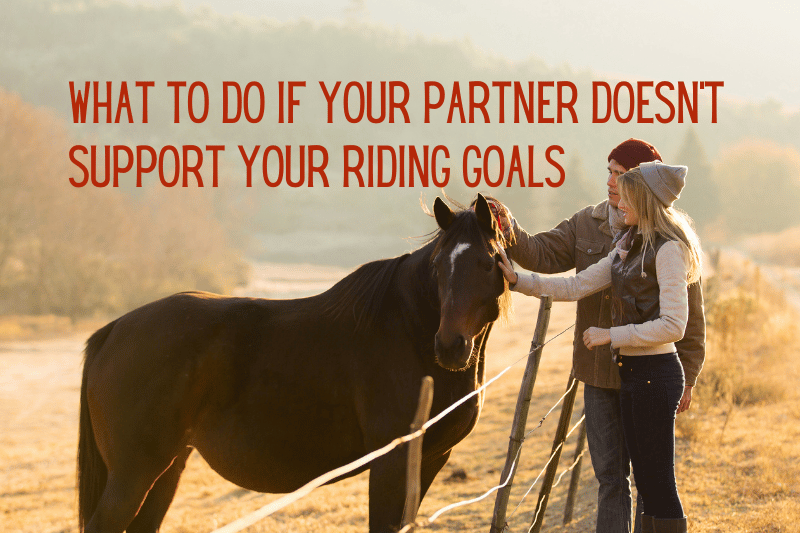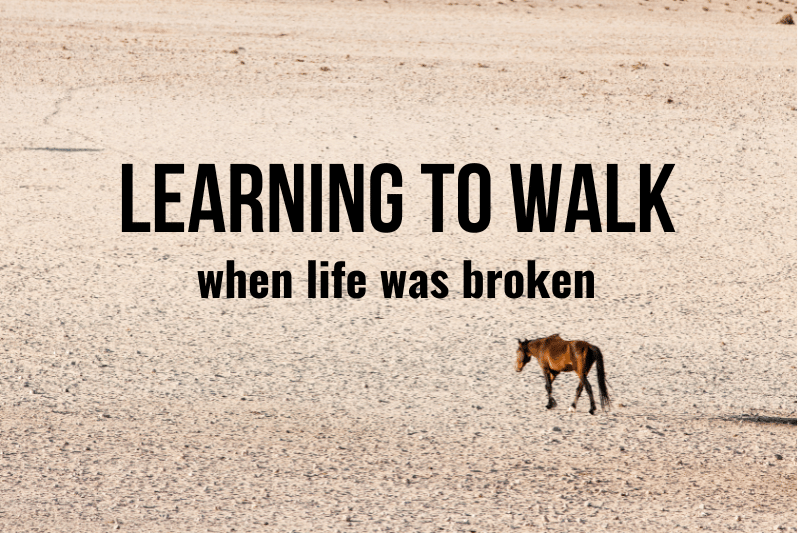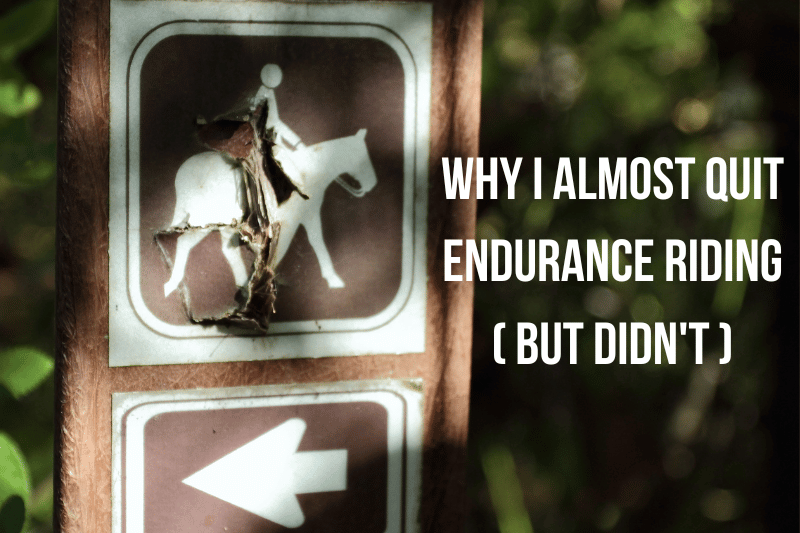I suspect riding is more likely than the average sport to cause resentment on the home front. It represents a massive investment of time, money, and energy. Your partner may struggle to understand — or even become hostile about — your commitment to your horse. What can you do if your partner doesn’t support your riding goals?
I can think of a handful of couples who both ride, but it’s unrealistic for most of us to interest our partners in competing. Maybe we can get them to trail ride occasionally. More likely, they’ll just come along to a show or ride camp for support. Perhaps they’ll stay home but send us on our way with goodwill.
Personally, I find any of those scenarios satisfactory. But what if your partner falls lower on the spectrum? What if he or she doesn’t support your equestrian ambitions at all?
While it’s unlikely that you’ll convert a resentful partner into a loyal Chronicle of the Horse reader, you may be able to shift him or her into a range you can both live with. Here are some suggestions that have worked for me and others whose partners don’t share their equestrian goals:
Stop Feeling Superior and Start Honoring Differences
When I was younger, I couldn’t understand that some people don’t have grand passions. My husband at the time simply wanted to come home from work, eat dinner, and watch TV together.
The horror! Couldn’t he see that he was wasting his life? That I was unwilling to waste mine? That the hours I spent sweating with the horses were infinitely more valuable than the ones he spent playing computer games?
No. He couldn’t.
It took me many years to accept not only that he couldn’t, but he shouldn’t. In their book The Passion Paradox, Steve Magness and Greg Stulberg confirm that some people are born passionate and others are not. It has to do with genetically-determined sensitivity to dopamine.
Besides, we all end up dead in the end, right? A hundred years from now, nobody will know or care who jumped Grand Prix, and who held down the sofa.
Not only is a less driven personality acceptable, it’s valuable. Over the past couple decades, I’ve let some chill-the-F-out seep into my Type A lifestyle, and it has done a lot of good for me and my relationships.
Communicate Why Riding is Important to You
Although our riding ambitions may not matter much to the world at large, they mean a great deal to us.
If your partner is the non-passionate type, or simply doesn’t get the value that horses bring to your life, the impetus is on you to explain. After all, you can’t expect anyone to support you if they don’t understand why it matters.
And why does it matter? Take some time to identify exactly what it is about horses generally, and competition specifically, that you find some compelling. Is it the physical challenge? The bond with your horse? The respite from daily life? The betterment of horsemanship? The equestrian community?
Now, use your words. Explain to your partner how pursuing your horse goals makes you a better, happier person.
Identify the Reason Your Partner Objects
On the flip side, you need to understand what it is that your partner objects to.
Money is a common concern. Time is another. Maybe your partner sees the opportunity cost of horse ownership ~ the vacation missed, the home renovation delayed ~ as not worth it. Maybe he’s jealous of the affection you lavish on your horse. Maybe he feels left out of a significant chunk of your life.
Take a deep breath and try to adopt your partner’s perspective without judgement. What if his concern is legitimate? What if you really are spending enough money to delay retirement, or focusing so much attention on your horse that you’ve neglected your human relationships?
Ultimately, whether you agree with them or not, understanding your partner’s objections is the first step toward finding solutions.
Acknowledge the Costs (Yes, All of Them)
Finances. Time. Energy. Opportunity.
Riding is expensive, and there’s no point hiding or denying it.
It’s not fair to ask a partner to support something she doesn’t see clearly. She might even be withholding support because she senses you’re not being completely honest. What if you took the risk of putting it all out there and seeing what your partner has to say?
You might find that increased trust opens doors you didn’t know existed. She might even have some creative solutions up her sleeve.
Hey, rider! Would friends and first responders know how to help if you were injured around the stable or on the trail? My free I.C.E. Pack includes printable placards for barn and trailer, cards for rider and horse, and instructions for friends and family. Get yours now.
Involve Your Partner in Decision-Making
Once you’ve come clean on the costs and benefits of your endurance ambitions, your partner will have the information he needs to identify appropriate compromises.
Last fall, after yet another year of back-burnering endurance riding in favor of family and travel, Mr. Sweaty and I had a heart-to-heart. I explained why I wanted to properly reengage with the sport and how that would impact our lifestyle. We would have to travel less. I would be busy conditioning horses on weekends. A lot of dollars would go into diesel, entry fees, and veterinary support. But it would mean the world to me.
It was a scary conversation (even though Mr. Sweaty has always professed support), because I was genuinely open to his perspective. I couldn’t feel good about going all in on endurance unless he was okay with it, so I laid it all out there. Was this something we could choose together? If so, what would it look like? What did I need from him, and what did he need from me, to make it work?
We agreed that I’ll do my best to wrap up evening horse activities in time to have dinner and some relaxation time together. I’ll spend weekend days riding but be back in time for family events. He’ll take over grocery shopping or company cooking when I need to get a long ride in. We’ll book travel dates that correspond to the horses’ rest periods after endurance events. We’ll prioritize weekly date nights. I’m not to feel guilty about horse expenses, and he knows that he’ll get the same indulgence if he ever chooses to pursue a passion.
It only works if you made the decision together.
Specify What You Need From Your Partner
It’s possible that your partner would be willing to offer support, but doesn’t know what you need. Maybe he doesn’t realize that his sour jokes about you loving your horse more than him cut deep. Maybe he doesn’t see how stressful it is for you to squeeze a ride in and still get dinner on the table.
If you need your partner to take the kids to soccer or lay off the snark or adjust his schedule so you can use the truck on Sunday…kindly ask. He might be more willing to help than you expected.
The corollary to specifying what you need is being willing to accept help. Like many equestrians, I’m so independent that it feels like weakness to let Mr. Sweaty provide backup. However, sometimes being needed is exactly what our partners need. And the truth is, letting go of flying solo is a relief.
Be the Bigger Sacrificer
At the same time, I’m a big believer in doing my own work.
I’m the one who wants the horses, so I’m the one who goes outside in all weather to feed, wrestle hay bales, fix fence, and trim hooves. I’m immensely grateful that Mr. Sweaty is happy to help when needed, but I make sure the lion’s share of the burden falls on me.
Also, I make my own sacrifices to accommodate endurance riding; I don’t ask him to do so. For example, I’ll plant a smaller garden this year (even though I love growing things) because I’m committed to my riding goals. Mr. Sweaty could, technically, give up some recreational computer time to take over my large garden duties…but I wouldn’t ask him to. Choosing riding means giving up something else, and it had better be my own something.
Being the one with the passion often means being the one who makes the concessions. I’m asking for support of the big, expensive thing, so I should be the one to give up more to get it.
Make Room for Your Partner's Priorities
One reason many partners resent our riding goals is that we tend to let them eclipse other priorities. Riding is such a large, complex, long-term commitment that we end up neglecting activities that don’t get us trotting down the trail.
Successful relationships are characterized by communication and compromise. If I’m asking my partner to support my interests, I need to be prepared to support his as well. Even if his priorities seem non-productive (say, watching Top Chef after dinner or having a cleaner house), that isn’t the point. The point is to honor his priorities in addition to my own.
Accept Reality and Get Support Elsewhere
Our culture leads us to believe that our partners should be our sole source of emotional support. However, this places an unrealistic burden on a single individual. Wouldn’t it be better to enjoy your partner for who she is and let others backfill her weaknesses?
If you’ve done your best and achieved only ambivalence from your partner, try letting go of her as your source of shared enthusiasm. Accept that she isn’t interested in your saddle fitting triumph or 50-mile finish, and celebrate with friends who get it instead. Letting your horse time be a break from daily life, a special opportunity to be alone or enjoy community, can actually be a positive.
If All Else Fails, Face the Hard Decision
In relationships, as in life, the scope of our influence is limited. If you’ve honestly done everything within your power to reach compromise with your partner, but failed, you may have a hard decision to make:
You could let go of your competition goal. Hang on, hang on. Just consider it. Would scaling back to a more casual equestrian activity be acceptable to you? Would it relieve the tension in your relationship? Is there a different kind of horse time that would satisfy you while keeping your relationship intact?
You could live with the dischord. Is it possible to agree to disagree? Can you carry on with your riding ambitions and let the snarky comments or sullen glances roll off your back? This obviously isn’t ideal, and it may not even be possible (especially when it comes to finances), but it’s where a lot of people end up. Personally, I couldn’t live with it…but maybe you can. Engaging a therapist for coping skills — ideally for both partners — is an option.
You could move on from the relationship. You see jokes about this on social media, but they are based in reality. If you aren’t willing to let go of your riding goals, and your partner isn’t willing to support you, maybe it’s time to move on.
I have actually done this. I think a lot of us have. It usually boils down to more than just riding, of course. The horse conflict is a symptom of an underlying issue, be it jealousy or disrespect or something else.
Everyone’s set of beliefs is different, and nobody can tell you what to do. Personally, I believe that a person who can’t let me be myself — grand passion and all — isn’t the right partner for me.
Fortunately, most cases don’t need to go that far. If you can improve your relationship from tense-and-secretive to understanding-and-communicative, you’ve won. See if you can find a way to ride, with or without your partner, in peace.
You might also like
This page may include affiliate links, and I may earn a small commission (at no extra cost to you) when you purchase through these links. I only recommend products and services I think are helpful and useful. Thanks for helping me offset the cost of maintaining this blog as a free resource!




